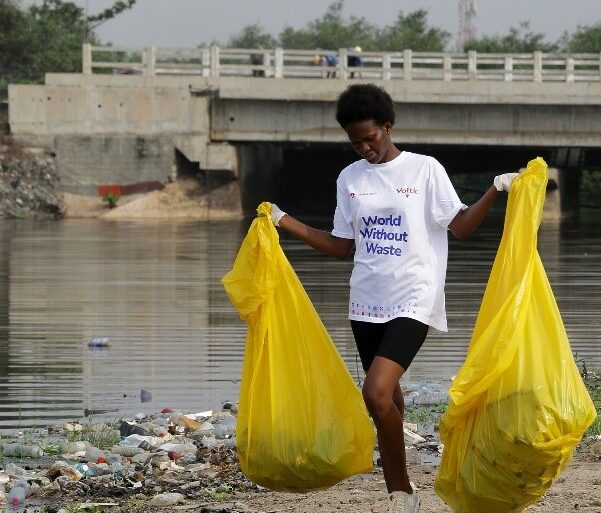Coca-Cola Beverages Africa (CCBA) as part of activities to commemorate the Global Recycling Day (GRD), March 18, 2022, has reiterated its commitment to the use of recyclable plastics and packaging materials.
The multinational organisation has set ambitious goals to help collect a bottle or can for every one of its products by 2025, use 50 percent recycled content in all packaging, and make 25 percent of its packaging reusable by the same year. In a similar vein, CCBA is targetting making all its packaging 100 percent recyclable by 2030.
Group Head of Sustainability-CCBA, Diana Sibanda, stated that the company has been developing increasingly sustainable ways to manufacture, distribute and sell its products. Adding that in an initiative called World Without Waste (WWW), it relies on partnerships with customers, consumer communities, industry and governments to succeed.
“We seek to use our industry leadership to be part of the solution, to achieve positive change in the world and build a more sustainable future for our planet. Voltic holds monthly buy-back events in communities to raise awareness on the value of plastic waste and stimulate recycling activity,” she said.
She added that food and beverage packaging is an important part of modern life, helping to ensure food safety and reduce food waste; yet the world has a packaging problem that requires a comprehensive response.
More and more plastic waste is being diverted from landfill sites into a circular economy that grows employment and entrepreneurship in African countries, an area that needs more attention.
There are many initiatives underway across CCBA’s territories: a few recent highlights include the move to clear Sprite Polyethylene terephthalate (PET) in six markets, which makes it much easier to recycle and has greater value as a recyclable material.
“Another milestone is extension of the PETCO model, which is based on the principle of Extended Producer Responsibility (EPR), to three additional markets since its inception in South Africa and plans for further rollouts to a total of eight markets. CCBA also started using returnable 2L PET in South Africa with the view of rolling this out to other markets,” she added.
Touching on other activities carried out in the past to address the plastic issue locally, CCBA indicated that its subsidiary, Voltic (GH) Ltd., has partnered with aggregators to collect bottles from pickup points around the capital; and is also working with Total Energies and other plastic waste pickers such as Coliba Limited, SESA and Beach Cleanup Ghana to establish collection points at fuel filling stations and other sites, where waste pickers can deliver used PET bottles for payment.
In South Africa, CCBSA partnered with Matongoni Recycling Group to provide a much-needed boost to the collection of PET bottles in rural communities of Limpopo Province.
CCBSA worked with Matongoni and community groups and households to buy collected and sorted waste material and transport it to its two recycling depots in Polokwane and Johannesburg. With the bottler providing a transport subsidy to Matongoni, collection trucks were able to cover a wider area; and a subsidy on collected materials gave locals a bigger incentive to go into the environment and collect as much waste as they could find.
In Uganda, CCBA partnered with the local council, recycling companies and Koyinawo Waste Management Services to clean up Mbarara City by collecting plastic waste in the communities of Makenke and Lubiiri.










